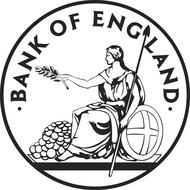 I've been interested in the future of money for far too long, and fascinated why it is that so little attention is paid to the problem of where it actually comes from.
I've been interested in the future of money for far too long, and fascinated why it is that so little attention is paid to the problem of where it actually comes from.I don't mean 'wealth creation' and the other cliches of politics. I mean who actually creates the pounds and euros in the first place.
This is a particular blind spot for the English, who are deeply conservative about these things. I was assured some years ago by the Washington correspondent of one of our biggest newspapers that all money is based on gold (not the case since 1931). Admittedly, he was from the Sun, but even so - he ought to have known.
Even among the radical types interested in this kind of thing, it is all pretty obscure.
I remember six of us sitting down to lunch at Schumacher College, all of us with a background in green economics, complaining about the ignorance around the issue - only to discover that all six of us had been labouring under six different interpretations.
There are serious consequences for this. It means that, for most of the past century or so, the business of how money is created has been completely ignored by the mainstream, allowing the whole question to be infiltrated by cranks, racists and conspiracy theorists.
One of the first serious attempts to look at this question from the point of view of radical change was James Robertson and Joseph Huber's pamphlet in 2000 called Creating New Money.
It was published by the New Economics Foundation (full transparency: I'm a fellow), and it was there nearly four years ago that I was involved in a meeting - also including my colleagues Stewart Wallis, Josh Ryan-Collins and Tony Greenham - which decided to end this great divide once and for all.
The result was their very successful book, Where Does Money Come From?, which set out in academic style exactly the process that happens when money is created. It was a hugely important moment.
And even more important now that the Bank of England has ended their long silence on the issue and confirmed this interpretation:
"Most money in the modern economy is in the form of bank deposits, which are created by commercial banks themselves… When a bank makes a loan to one of its customers it simply credits the customer’s account with a higher deposit balance. At that instant, new money is created…”
This is important (though it's also a few weeks old - I've been meaning to write this post for ages). It means that the old pretence that somehow money creation remained directly in the hands of governments, or was based on gold, or that all money simply goes round and round like the London water supply, is finally now over.
Now this is finally in black and white, then some of the implications need to be addressed. Most money is created with interest attached - it has to be paid back, plus a bit. It has inflation built into it. It is also stretchable, especially if you are already wealthy (for most of us, it remains concrete and unforgiving, of course).
But the most important area now opened up for discussion is this. Given that money was not made by God on Day Six of the creation of the world, is there another way of providing ourselves with our monetary needs more effectively and with less built-in instability? Are there other kinds of money we might invent as well?
Normally I would say at this point something silly like 'I think we should be told'. But it is time we stopped being told these issues were too complicated for us. I think, instead, we should discuss - and as widely as possible.
And if you're interested in the history of this debate, may I recommend that you start with my book The Money Changers.
Subscribe to this blog on email; send me a message with the word blog subscribe to dcboyle@gmail.com. If you want to stop, you can email me the word unsubscribe.